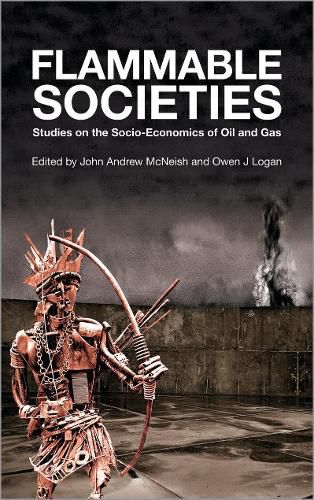Readings Newsletter
Become a Readings Member to make your shopping experience even easier.
Sign in or sign up for free!
You’re not far away from qualifying for FREE standard shipping within Australia
You’ve qualified for FREE standard shipping within Australia
The cart is loading…






The impact of the oil and gas industry - paradoxically seen both as a blessing and a curse on socio-economic development - is a question at the heart of the comparative studies in this volume stretching from Northern Europe to the Caucasus, the Gulf of Guinea to Latin America.
Britain’s transformation under Margaret Thatcher into a supposedly post-industrial society orientated towards consumer sovereignty was paid for with revenues from the North Sea oil industry, an industry conveniently out of sight and out of mind for many. Other case studies include resource struggles in Bolivia, oil money in Venezuela and the Azerbaijani oil boom among many others.
Drawing on bottom-up research and theoretical reflection, this book questions the political and scientific basis of current international policy that aims to address the problem of resource management through standard Western models of economic governance, institution building and national sovereignty.
$9.00 standard shipping within Australia
FREE standard shipping within Australia for orders over $100.00
Express & International shipping calculated at checkout
The impact of the oil and gas industry - paradoxically seen both as a blessing and a curse on socio-economic development - is a question at the heart of the comparative studies in this volume stretching from Northern Europe to the Caucasus, the Gulf of Guinea to Latin America.
Britain’s transformation under Margaret Thatcher into a supposedly post-industrial society orientated towards consumer sovereignty was paid for with revenues from the North Sea oil industry, an industry conveniently out of sight and out of mind for many. Other case studies include resource struggles in Bolivia, oil money in Venezuela and the Azerbaijani oil boom among many others.
Drawing on bottom-up research and theoretical reflection, this book questions the political and scientific basis of current international policy that aims to address the problem of resource management through standard Western models of economic governance, institution building and national sovereignty.